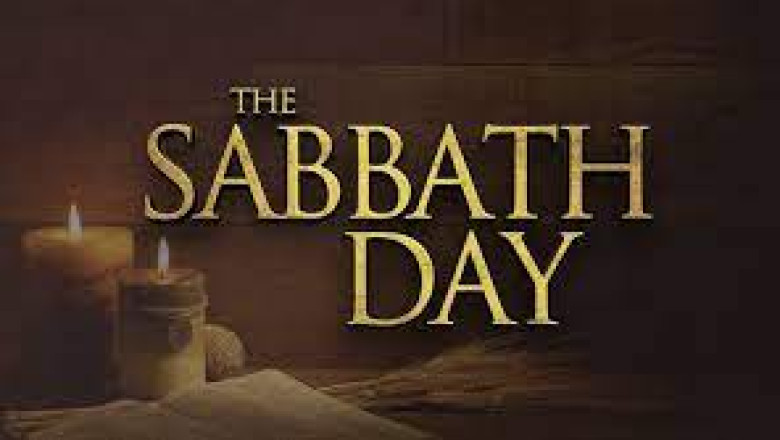views

Introduction
The question of whether the Sabbath should be observed on Saturday or Sunday has been a topic of religious and theological debate for centuries. This article delves into the historical, biblical, and cultural aspects of this discussion, offering insights into why this topic remains significant for many believers today.
Historical BackgroundOrigin of the Sabbath
The concept of the Sabbath has ancient roots, tracing back to Jewish traditions where it is observed from Friday evening to Saturday evening.
Jewish Tradition and Saturday
In Judaism, Saturday is regarded as the Sabbath, a day of rest and worship, as it aligns with the biblical account of God resting on the seventh day.
Early Christian Practice
Initially, early Christians, who were predominantly Jewish, observed the Sabbath on Saturday. However, this practice began to evolve over time.
Biblical PerspectivesSabbath in the Old Testament
The Old Testament, particularly in the books of Exodus and Deuteronomy, emphasizes the observance of the Sabbath on the seventh day as a covenant between God and Israel.
Significance in Jewish Law
For Jews, the Sabbath is not just a day of rest but a sacred observance integral to their covenant with God.
Sabbath in the New Testament
The New Testament presents the Sabbath in a new light, with Jesus Christ often engaging in debates over its observance.
Jesus and the Sabbath
Jesus' approach to the Sabbath, as recorded in the Gospels, indicates a shift from strict adherence to the law towards a more compassionate, purpose-driven observance.
Cultural and Societal InfluencesThe Role of the Roman Empire
The Roman Empire's influence played a significant role in shaping early Christian practices, including the observance of the Sabbath.
The Shift to Sunday
The transition from Saturday to Sunday as the day of worship for many Christians is rooted in historical and societal changes during the early centuries of Christianity.
Constantine’s Influence
Emperor Constantine's decree in 321 AD officially recognized Sunday as a day of rest, marking a significant turning point in the history of Christianity.
Theological ArgumentsSaturday Sabbath Supporters
Advocates for observing the Sabbath on Saturday often cite scriptural fidelity and adherence to traditional Jewish practices.
Scriptural Basis
This group relies heavily on the Old Testament to support their view, emphasizing the unchanging nature of God's commandments.
Sunday Sabbath Advocates
Those who support Sunday observance often point to the resurrection of Jesus Christ, which occurred on a Sunday, signifying a new beginning.
Resurrection and New Beginnings
This perspective views Sunday as a celebration of Christ's resurrection and a symbol of new life, aligning with Christian beliefs in salvation and rebirth.
Contemporary Views and PracticesModern Christianity and Sabbath Observance
Today, Christians around the world observe the Sabbath on different days, influenced by denominational beliefs, historical context, and personal convictions.
Diverse Denominational Views
Different Christian denominations have varying interpretations and practices regarding the Sabbath, reflecting the diversity within Christianity.
Personal Faith and Choice
Ultimately, the decision on which day to observe the Sabbath often comes down to personal faith and the individual's relationship with their religious teachings and community.
Conclusion
In conclusion, the debate over whether the Sabbath should be on Saturday or Sunday is rooted in a complex interplay of historical, biblical, and cultural factors. It reflects the dynamic nature of religious practice and interpretation, reminding us that faith is often a personal journey shaped by various influences.












Comments
0 comment